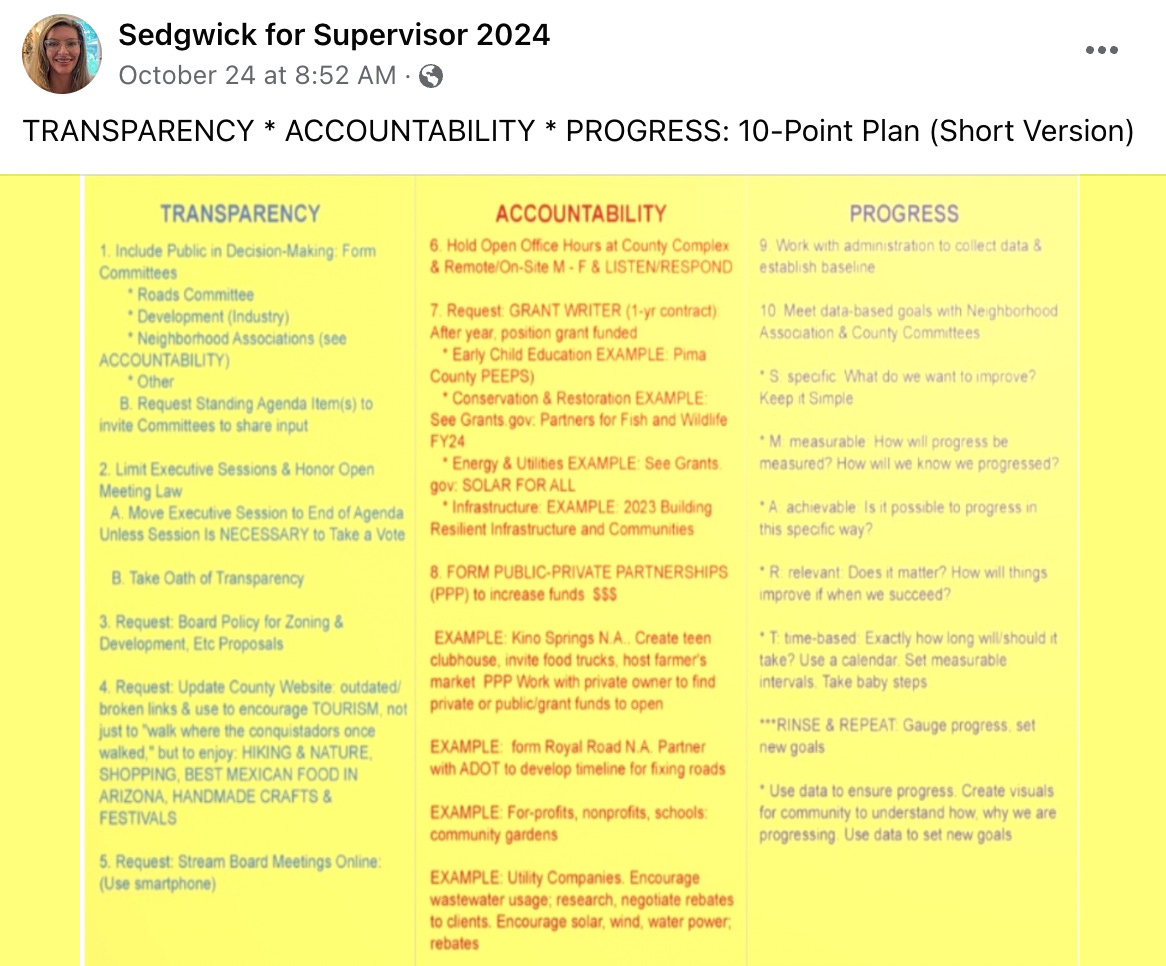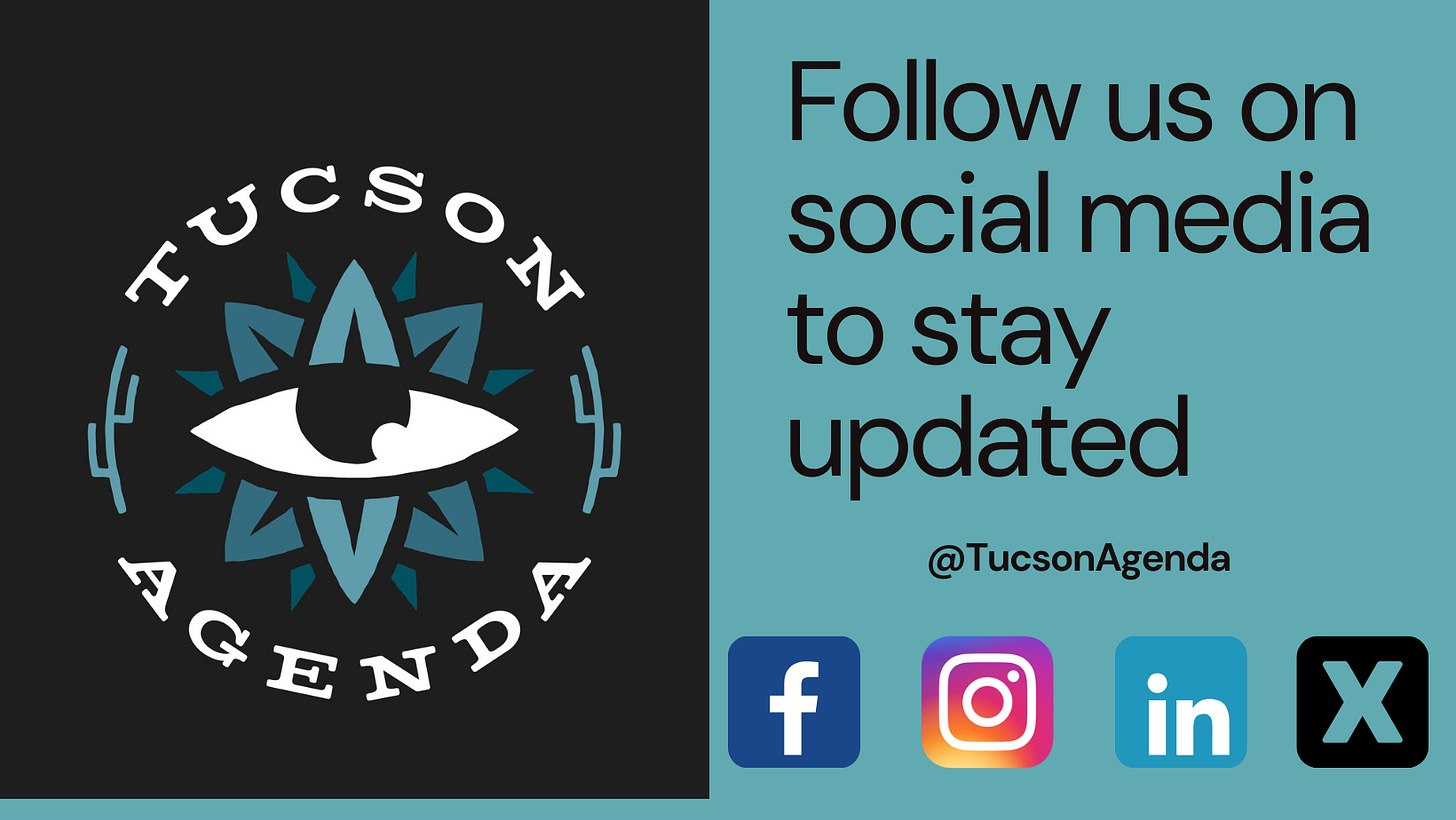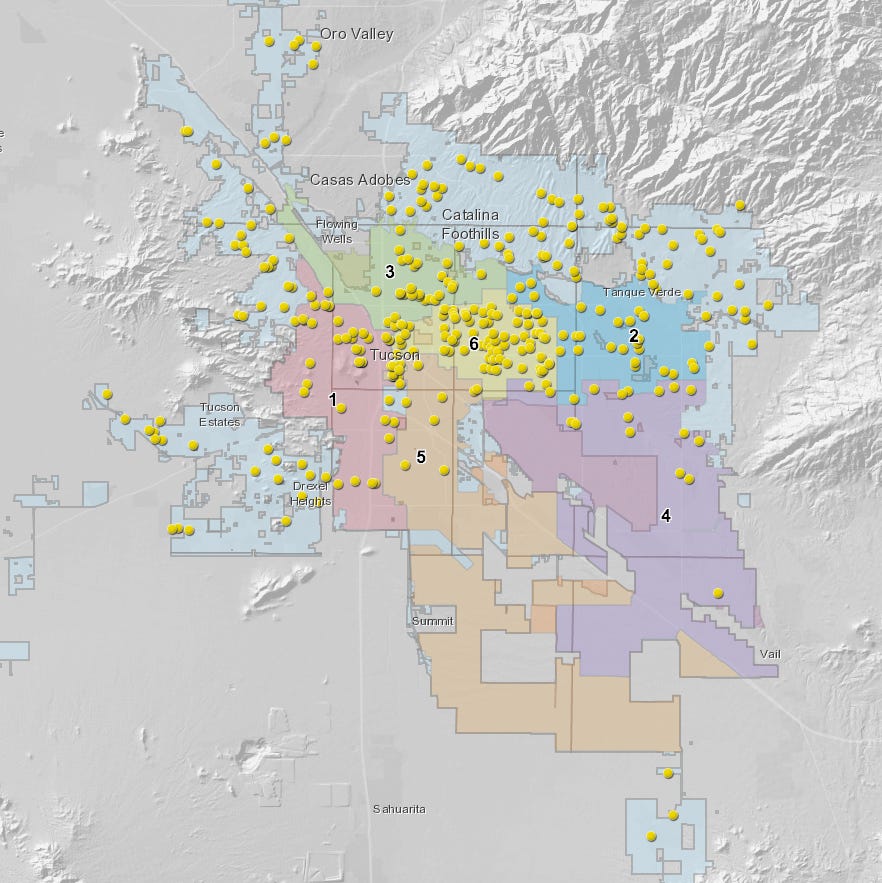The Daily Agenda: Making up for lost time
A Tucson water program languished for years … Officials are trying to get it back on track … UA faculty not happy with Robbins.
If you’d like to get the word out about your business, event or organization, we have good news! The Tucson Agenda and Arizona Agenda are opening up advertising opportunities. Click on the button to get in touch.
The United Way of Tucson and Southern Arizona is recruiting for its Volunteer Income Tax Assistance program, which provides free, quality tax preparation for low and moderate-income families and people across the state.
The program’s IRS-certified tax preparers help people access tax credits and maximize their refunds. Volunteers serve an average of 40 hours during tax season and typically commit to one shift per week from early-February through mid-April. There are several different in-person and virtual roles available and United Way provides the training, so no prior experience is necessary.
Learn more here or by clicking the image above.
The Tucson City Council was the darling of the water world in 2008 when they demanded businesses harvest rainwater during an epic drought.
This wasn’t just a new incentive or an education campaign. This was a city ordinance that required businesses get at least half the water they use on landscaping from rainwater. Water experts, and national news outlets, hailed it as groundbreaking.
Then the program stagnated for a decade. Businesses didn’t really comply with it and city officials didn’t issue a single citation to enforce it.
It wasn’t until 2018 that anybody at the city took a hard look at the program, and it wasn’t until 2021 that the public heard how poorly it was going. A city-commissioned report, and then local news coverage, showed rainwater harvesting was often an afterthought in construction plans and many businesses were using much more potable water than rainwater on landscaping.
By that time, the business community looked at the city’s ordinance as a “joke,” local water harvesting expert Brad Lancaster told the city council at their Jan. 25, 2022 meeting.
At that meeting, newly elected Council member Kevin Dahl applauded the city’s water conservation efforts, but he stressed he wanted to focus on the “details” of those efforts to make sure they were working.
Tomorrow, the council will get an update on the details of the commercial water harvesting program during a study session requested by Dahl, and direct staff on what they should do next.
The city has made some progress since that January 2022 council meeting. They hired a landscape architect and two construction inspectors. They’ve reviewed and approved 137 commercial rainwater harvesting plans. In most cases, businesses quickly comply and often end up saving much more water than the 50% required by the ordinance, a memo from city staff shows.
City staff also are going through building projects and rainwater harvesting plans that predated the new hires, which added 525 projects to their list.
The rainwater harvesting ordinance won’t solve Tucson’s water problems on its own. Far from it. The city still depends a great deal on Colorado River water.
But as the city leans into the water conservation goals in the One Water 2100 plan the council approved last month, these are the programs city officials, and the public, will need to keep a close eye on.

It’s not just rainwater harvesting, either. Over the years, the city built up a long list of water conservation measures, including using more graywater, high-efficiency toilets, and banning ornamental grass. All of them need attention if they are going to accomplish their water conservation goals.
And keep in mind, the public is footing the bill for all this. Tucson Water customers have paid a fee to fund the city’s water conservation program since 2008. That comes to about $41 million collected over the years, including a $3.7 million budget in 2022, the city’s annual water conservation report showed.
For those who want to watch how the city council handles the rainwater harvesting ordinance, or speak at call to the public, the study session agenda is here. It starts at 12:30, but you can watch it on the city’s YouTube channel whenever you like.
Best laid plans: Our ad in the Nov. 5 Sunday edition of the Arizona Daily Star made some waves. We got a lot of new subscribers, but unfortunately our plans for a big digital campaign were cut short by the Star’s parent company. It was quite the debacle. You can read all about it in our sister newsletter the Arizona Agenda.
Hat in the ring: Former Tucson Unified School District governing board member Rachel Sedgwick has filed paperwork to run as an Independent for a seat on the Santa Cruz County Board of Supervisors representing District 1. Sedgwick sat on the TUSD board for one term, from 2016 through 2020, and filed paperwork to run as a Republican in the 2020 Pima County Board of Supervisors election. She terminated that bid in January 2020, after it was reported that her application to the State Bar of Arizona had stalled because she failed to report on her application that she’d previously been detained by police for driving under the influence of alcohol.
National honors: Two Tucson women who co-founded a clothing bank for foster kids have received national recognition for their efforts, after being nominated for an award by U.S. Rep. Raul Grijalva, Inside Tucson Business reports. Michele Bennet and Michele Wright have been named 2023 Angels in Adoption Honorees by the Congressional Coalition of Adoption Institute. Wright and Bennett launched Spreading Threads Clothing Bank in 2018 after the state cut benefits to foster children and their families.
Fight or flight: Former U.S. Sen. Martha McSally said she was “molested and fondled” by a man on Wednesday while jogging in Council Bluffs, Iowa, the Associated Press reports. Police arrested a 25-year-old man from Nebraska in connection with the incident, which McSally described in a video posted to Facebook.
“A man came up behind me and he engulfed me in a bear hug and he molested and fondled me until I fought him off,” she said. “I then chased him down. I said a lot of swear words in this moment. I was in a fight, flight or freeze. And I chose to fight.”
Leadership on blast: Several University of Arizona faculty members told the Arizona Daily Star’s Ellie Wolfe that the school’s recently announced “financial crisis” is the result of a management issue. Faculty members say they’ve long had concerns about a lack of transparency and accountability by President Robert C. Robbins and that a series of recent financial decisions, including loaning the athletic department more than $50 million during the pandemic and the purchase of the online Ashford University (now called the UA Global Campus,) show mismanagement from Robbins and his administration.
Recount likely: Prop. 413, which would give raises to Tucson’s mayor and city council, is passing by such a narrow margin that it’s now in recount territory, the Arizona Luminaria’s Carolina Cuellar writes. State law requires a recount when the vote margin is equal or less than 0.5% of the total votes cast for the proposition. As of Friday afternoon, 47,130 voters were in favor of the proposition and 46,831 were opposed. That’s only 299 votes and a margin of 0.3%. The elections department is waiting for the recorder’s office to correct 231 ballots and 59 provisional ballots, which are expected to be completed by Tuesday.
$16 million: The amount of money the City of Tucson has paid in rebates and incentives for water conservation programs since 2008. The map below shows where nearly 350 rebates for rainwater harvesting went in 2022.










